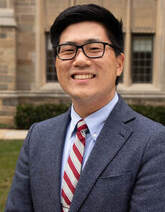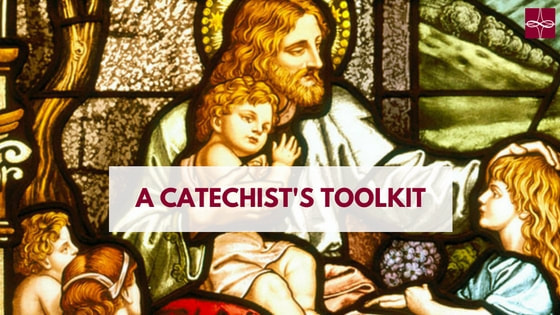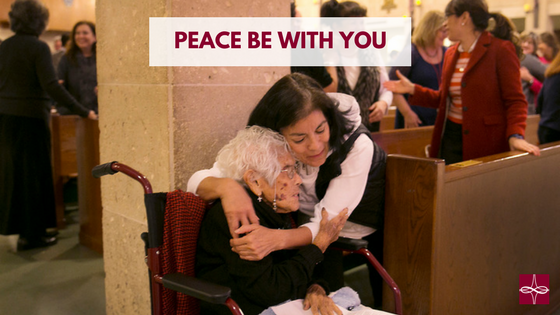|
4/7/2020 Cooking During COVID-19: Ten Tips for Nourishing Your Body and Soul | COVID-19 ResourceRead Now“As chefs, we know that good food provides not only nourishment, but also comfort, especially in times of crisis.” -Chef Jose Andres When Hurricane Maria hit Puerto Rico in September of 2017, there was a great need for food- not just for the necessary nourishment, but also because “good food provides. . .comfort, especially in times of crisis.” Chef Andres and his team at World Central Kitchen provided 3.7 million fresh, never pre-packaged, locally sourced meals for the people of Puerto Rico as they recovered from Hurricane Maria. While our current situation in the midst of the COVID-19 pandemic likely doesn’t call us to produce millions of meals, Chef Andres’ thesis remains true—food brings comfort, especially in times of crisis. Chefs like Jose Andres and Andrew Zimmern were a large inspiration for me to pursue a degree in Culinary Arts. They helped me to see that food is not only tasty, a way to earn a living, and a creative outlet, but that it is a way to build community, to learn about culture, and to cultivate human bonds around our tables. Despite changing the scope of my career, food still plays a big part in my life. When I cook for friends and family, we are able to be together at table, just like Jesus invites us to. I see questions every day on social media from friends asking how best to cook this or bake that, for tips and tricks, so I figured I would provide some of my tips. So here are ten tips for cooking during the pandemic, quarantine, and crisis.
0 Comments
“The word of God nourishes both evangelizers and those who are being evangelized so that each one may continue to grow in his or her Christian life” – National Directory of Catechesis Over the last 40 years, the United States Conference of Catholic Bishops (USCCB) has especially recognized the importance of catechists in the process of evangelization by reserving the third Sunday in September as “Catechetical Sunday.” Catechetical Sunday commemorates and celebrates the ministry of formal catechesis, which is the systematic teaching of the tenets of the Catholic faith in order to help others know more about God and his Church. This ministry has had a significant role in my life over the past four years and across two different dioceses. There is something amazing about trying to explain the Old Testament prophets to a group of 6th grade students, a majority of whom has never heard the likes of Jeremiah, Isaiah, Elijah, etc. I love seeing the excited faces of students that either know or are interested in the subject of my teaching, while the blank ones challenge me to find compelling ways to make the faith a living part of their lives. On Catechetical Sunday, parishes, including where I have served, have a particular ritual: before the recessional at the end of Mass, the celebrant asks all who are called to serve as catechists to stand and receive a blessing for their work throughout the year. This serves two purposes: it helps the catechist understand the importance of their teaching role in the parish and also serves as a moment of reflection for the rest of the congregation. The influence of a catechist on a young life cannot be understated. Below are a few tips I’ve learned throughout my time as a catechist that can help those interested in pursuing the ministry of catechetical formation.
Catechetical Sunday reminds us of our individual roles in the evangelization of the baptized. In our small way, my fellow catechists and I—men and women from all walks of life and individual faith journeys—try to sow the fruits of faith for the next generation of disciples. Pulling from my toolkit, I will leave you with a blessing for catechists: “Lord God, source of all wisdom and knowledge, you sent your Son, Jesus Christ, to live among us and to proclaim his message of faith, hope, and love to all nations. In your goodness bless our brothers and sisters who have offered themselves as catechists for your Church. Strengthen them with your gifts, that they may teach by word and by example the truth that comes from you.”
“Good morning and welcome to St. Michael Catholic church. Before Mass begins, we invite you to take a moment to greet those around you.”
I was on vacation at the time I heard these words, and thus totally unfamiliar with the parish until I had searched for local Catholic churches. There wasn’t much choice compared to my options in a densely populated city, but I knew Mass was Mass—the same and just as important in the rural diocese I was visiting as it is in the Archdiocese of Washington (and the rest of the Universal Church). I was excited to experience another faith community as a visitor. After the cantor made the welcome announcement, the parishioners around me turned and exchanged greetings with their neighbors. While there were a number of familiar faces for them, mine was new. Their eyes lit up when they saw me. I appreciated the parishioner’s hospitality efforts, beginning with the first handshake and smile. As Mass began, I could not help but pick up on the small differences in the celebration of the liturgy: the church was smaller and rounder, there was a piano instead of an organ, the servers were past middle-age, and the priest liked to stroll up and down the aisle during his homily. While it was not exactly what I was used to, the actual worship of God and the spiritual nourishment of the faithful was no less authentic or beneficial. The Word of God was proclaimed in the readings and we received the real Body, Blood, Soul, and Divinity of our Lord Jesus Christ in the Eucharist. We sang hymns, exchanged a sign of peace, and participated in the usual liturgical responses, movements, and postures at the appropriate times. These experiences may very well be shared by anyone taking a vacation this summer or otherwise visiting another parish. The Mass transcends one’s location or liturgical preferences. It is ultimately the gathering and lifting of prayers of praise, petition, repentance, and thanksgiving to God Who blesses us with His grace and True Presence. In Her wisdom, the Church has laid down guidelines for the celebration of the liturgy that must be adhered to in order to be valid. Without them, the Mass would lose its focus on divine worship and partaking in the Sacred Mysteries. While different parishes and cultures may imbue a different spiritual character in the celebration of the sacraments, the Substance (God) remains the same to unite all the faithful, whoever and wherever they may be. This universality reflects that of the Church, instituted to proclaim Christ to all, especially those outside of His Body. My experience of welcome at this new church during my vacation reflected that very evangelical mission! One does not have to go far to invite another to share in the Sacred Mysteries—all are invited to enter and re-enter the liturgy, and to do so more deeply than before in order to draw more meaning and grace along one’s spiritual journey. After that morning’s Mass, the church hosted a hospitality breakfast during which I was continually greeted by other parishioners who expressed amazement that I found my way to join them in the Eucharist at such an early hour—and on a weekday! To some, it was refreshing to see not only a new face, but a young one. They were as happy to greet me and share their experiences as I was to be there and form new ones. Before leaving that church to continue on with the day, the members of the faithful drew strength from their reception of Jesus in the Eucharist and from each other in order to sustain them through the burdens and challenges of their lives. In welcoming newcomers to the Catholic Church, let us strive to extend the same heartfelt message as our Lord to the wearied disciples after His Passion: “Peace be with you!” Doing so will not only help others benefit from the graces and support offered at your home parish, but will also strengthen and enrich the life of the local church as it endeavors to minister to the world spreading the Gospel message. Question for Reflection: How does visiting different parishes deepen your understanding of the Mass? Have you ever benefitted from attending Mass in a different location or within a different culture? Liturgy is just exhilarating! What could give you more of a spiritual rush than a thirty minute homily being read straight from the page, a cantor who sings with the voice of an angelic chicken, an altar server who must be awakened from her mid-Mass nap to bring the Missal to the altar, and a lector who proclaims the Word of God with monotone gusto and the speed of a snail?
Okay, yes, liturgy on the surface can be quite unexciting. We can often leave Mass unnourished, and critiquing everything that left us unsatisfied. Yet, everything that we critique, everything that leaves us unsatisfied, is what is essential to liturgy itself. Liturgy is a reflection of us, the faithful. So, perhaps, we are quite unexciting; however, I don’t believe this is the case. I think liturgy takes on a different type of excitement, an excitement that fulfills us in a way that nothing of this world can compare to. There are many times when I’m having a bad day, and I hope and pray that a large McDonald’s chocolate shake will give me the nourishment and comfort that I need to continue on. As I sit in the drive-thru line, I’m excited about my chocolate shake to the point where I can even taste it! Ten minutes later, after consuming 22 fl oz. of ice cream goodness, I find myself sick and even more unnourished than before. The excitement of the chocolate shake is an excitement of this world that will never last. It does not even come close to the nourishment and excitement that the Eucharist brings to those who believe. Everything we do flows from liturgy. Sacrosanctum Concilium (Constitution on the Sacred Liturgy) says that “the liturgy is the summit toward which the activity of the church is directed; it is also the font from which all her power flows” (SC 10). Just as we bring bread and wine to the Altar to be transformed into the Body and Blood of Christ, when we come forward to receive Christ, we bring our very selves to the Altar of God to be transformed and commissioned to Christ’s ministry on earth. This has been the purpose of Eucharistic liturgy since the beginning of the Church. In the second century, Justin Martyr defended the Eucharistic practices of the Church by stating the following: “through the word of prayer that comes from God, the food over which the Eucharist has been spoken becomes the flesh and blood of the incarnate Jesus, in order to nourish and transform our flesh and blood” (Apologia I, 65-66). We are unable to do Christ’s ministry here on earth without the fruits of our liturgical worship. Every time we celebrate Mass, we are coming to the source, the origin, of all life and ministry. How exciting is that? If we truly understand that our Eucharistic celebration is where it all begins, then no boring homily, no awful cantor, no napping server, and no monotone lector can ever lesson the excitement that abounds beneath the surface of liturgy. No matter what liturgical experience we may have on the surface, the excitement of liturgy should pour forth into our lives, helping us to engage in the ministry that Jesus established for us on earth. As I mentioned, liturgy is a reflection of us, the faithful. It is us doing the work of God, on behalf of God and for God’s people. Because we are only human, liturgy may not live up to the idea of excitement that we are used to. However, liturgy is home to a different excitement, a lasting excitement, an excitement that will always be present. It’s just a question of whether we’ve come to Mass open to this excitement. Have we come to Mass for a chocolate shake, or have we come to be sent forth to proclaim the Gospel of the Lord? Stephen Schad is working towards his MA in Liturgical Studies from the University of Notre Dame, and is currently the Director of Liturgy and Music at Saint Maximilian Kolbe Catholic Community in Houston, TX. |
Details
Archives
July 2024
Categories
All
|
About |
Media |
© COPYRIGHT 2024 | ALL RIGHTS RESERVED








 RSS Feed
RSS Feed